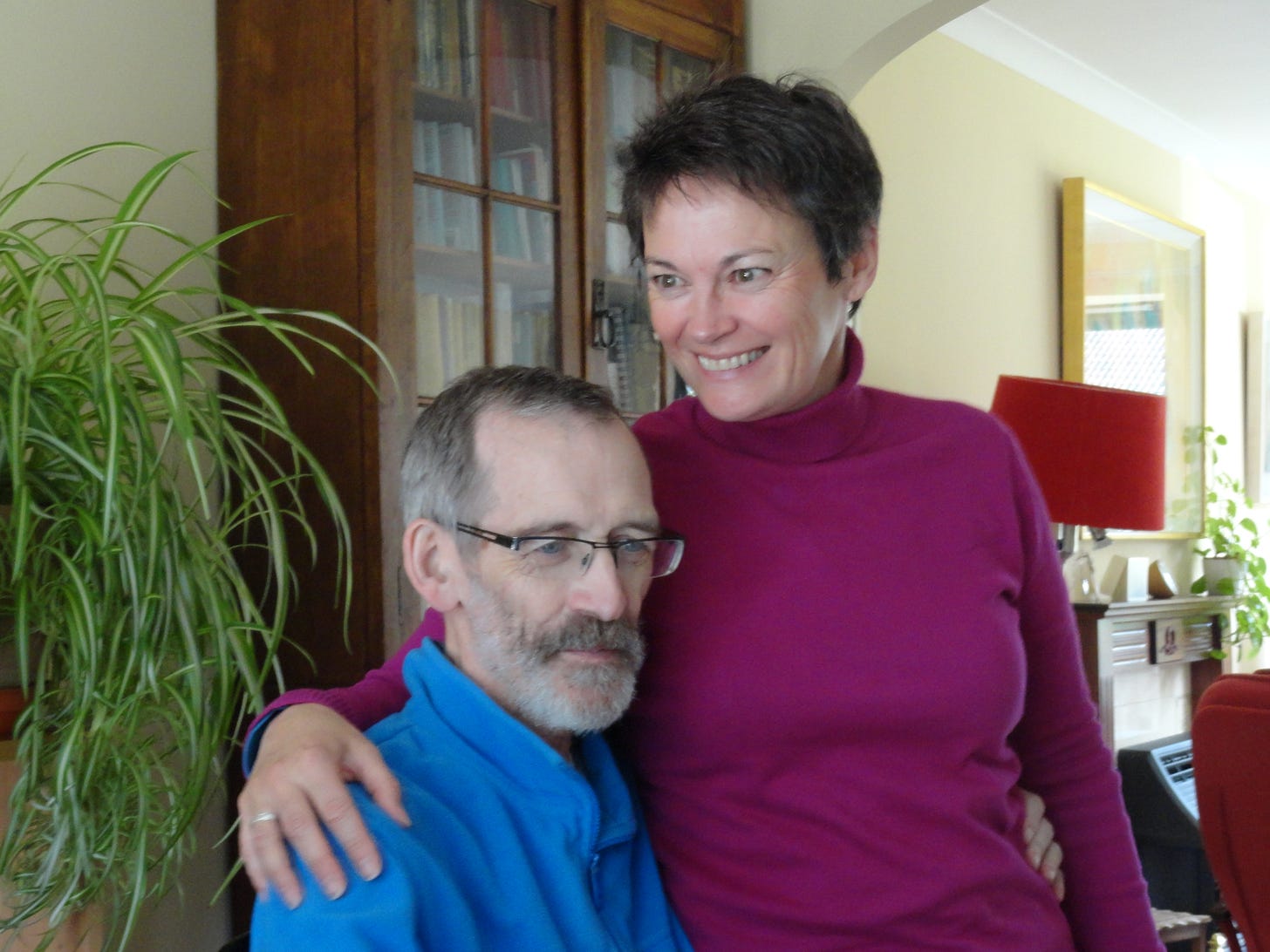I was excited to see the new Bridget Jones film, Mad About The Boy; it was going to be a good girlie night out. I didn’t really know what it would be about, just ‘the latest Bridget Jones film’ was enough for me.
Sitting in the local cinema next to my girlfriends, I realised Bridget was now a widow. Mmm. This could be very poignant.
My husband of 20 years, Philip, died in Dec 2011. Now here I was, tears pricking at my eyelids before they took on a life of their own and spilt over. I haven’t cried about him for years. But there on the screen in front of me were events happening that I knew about.
The talking aloud to my lovely man, no longer there in body.
The sifting through boxes of photographs, and mementoes.
The special memories documented by cards.
No wonder the tears were overflowing.
Widowhood, whatever sex you are, is more common when you are older. It’s just a fact of life, something that has to be accepted.
This film is set 4 years after Bridget’s husband’s death, with Bridget daring to think she could date again. Some may be put off by that, thinking it is too soon. Others may think (like her friends in the film) that it’s about time someone else came on the scene.
For me, I had to marry myself, be alone, come to a place of feeling fine with the idea of possibly having no partner for the rest of my life. And only then be able to seriously consider even the possibility of being with someone else.
And then, just like in the story books, I met another wonderful man who was to become my second husband. (More about how that happened another time!)
There are several themes going on in this film, but I wanted to concentrate on just one, this idea that it is indeed possible to find love again, even when the worst has happened.
My second husband had also been widowed. It had taken him a lot less time than me to come to a place where he felt ready to consider another relationship. I had to watch my judgmental self come rapidly to the fore when I learnt on first meeting him that his wife had died just 6 months before. Six months into my own grieving, and I was still in pieces, regularly, and not even remotely interested in someone else.
That was my first intimation that people deal with grief in very different ways. He had met the tragedy of his wife’s death from cancer with a completely different way of thinking about it.
Ever the technical whizz kid, he had reasoned that if anyone had told him when they first met that he’d have 43 happy years together with his wife, he would have been satisfied. Now that her death had happened, he was reflecting back that this was now ‘Game over. Bonus life’, the term used so commonly in computer games.
Whereas I had ranted and railed, finding it much more challenging to come to terms with the fact that Philip had died, even with the cancer being diagnosed 14 months before his actual death.
Simply put, I could not accept what had happened other than tiny little bit by tiny little bit, over a long period of time. Nothing wrong with that, of course. And my new husband’s way of dealing with it all was to bring his rational mind to the fore.
This was a sobering lesson for me in how important it is not to judge others by my own standards. As I was to discover, my new husband is excellent at accepting life the way it is, certainly compared to me. And that is something I have learnt from, and continue to learn from.
Back to Mad About The Boy.
Alongside my tears in that cinema, I also experienced laughter, joy, possibility, ridiculousness, sadness and wisdom. The full gamut of feelings, while life was doing what it is supposed to do - carry on, even while death is included as part of it. And there’s the rub. Death IS part of life, you can’t have one without the other.
It’s so obvious when you think about it, isn’t it? And yet here in Western culture, we often behave as if the fact of death is a failure, and should at least be staved off for as long as possible. More on that another time too, its a big topic!
For now, I’ll end with inviting you to contemplate that it might be possible to embrace death as part of life, just as it is possible to embrace ageing. And check out the film - as well as the tears, there were plenty of laughs and old-fashioned entertainment.





Decades ago, I read an article that said research showed that those who had happy marriages were significantly more likely to get remarried if their spouse died, whereas those who didn't, did not
I appreciated the observation about the vast range of difference that grief can take. But it also made me wonder if part of his readiness to jump back in had to do a little bit with this as well.
Thank you for sharing your beautiful thoughts!
I have come to think that aging starts at conception and continues until we leave the body.
Somehow that normalizes it for me and takes away most of the fear around death. My greatest fear now is leaving a mess for my husband and children to clean up. Lately, I've been wondering if my procrastination around this daunting task is some leftover unwillingness to face my upcoming death. I'll have to ponder this!